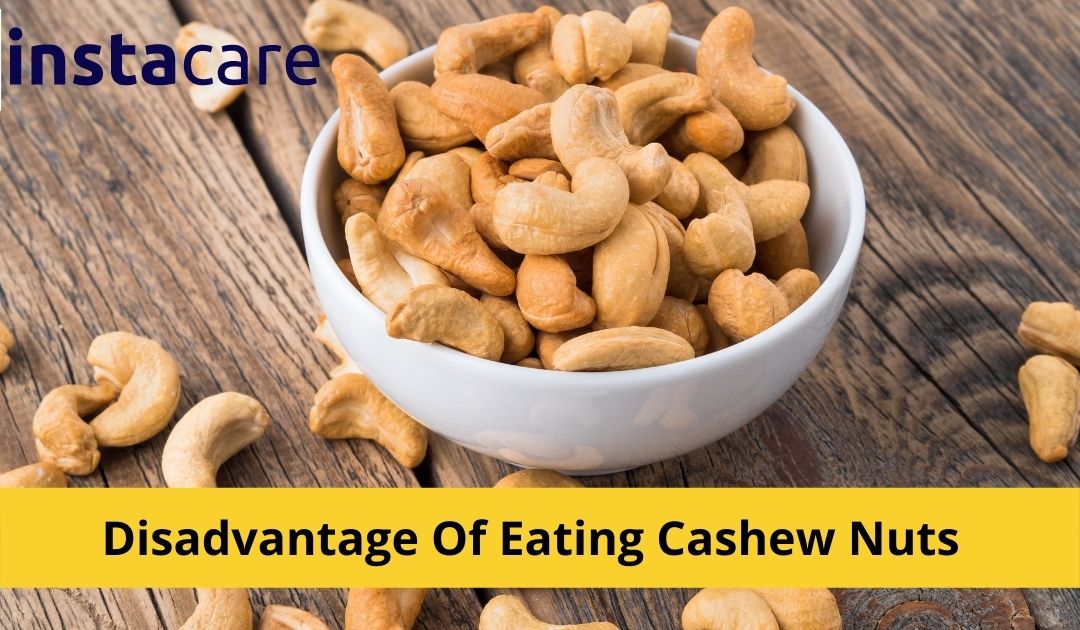Cashews are a kidney-shaped seed from the cashew tree, a tropical tree native to Brazil that is now cultivated in a range of warm climates across the world. Although "raw" cashews are generally available, they are harmful and toxic because they contain urushiol, a poison ivy-like toxin. Urushiol is toxic, and it can cause a skin reaction in some people if they come into contact with it. Therefore, the poisonous liquid is removed from cashew kernels during processing, and the final product is marketed as "raw."
Cashews are seeds, not tree nuts, even though they are nutritionally similar. When consumed in moderation, they're high in nutrients and beneficial plant chemicals, and they're a simple addition to a variety of recipes.
Side Effects Of Eating Cashew Nuts
Cashew nuts are a healthful supplement to your diet when used in moderation. They're high in beneficial fats, fiber, protein, vitamins, minerals, and antioxidant phytochemicals, much like other nuts. However, cashew nuts have many disadvantages if not used in moderation. It can create lots of new health issues.
Cashew has extremely few negative side effects. However, if you consume too many cashews or are allergic to them, you may experience bloating, constipation, weight gain, and joint swelling. The following are the main consequences of eating too many cashew nuts:
Weight Gain
As we all know, Cashew nuts are high in calories and fat. So, should we eat cashew nuts, or will they make us gain weight? The answer is yes. If we eat too many cashew nuts, we will gain weight. And if consumed in moderation, they will not cause us to gain weight. Nuts contain a lot of "healthy" fats. When you eat too many cashew nuts, cashew nut kernel's most prominent adverse effect is weight gain.
To gain weight, how many cashew nuts should we eat every day? However, if you want to gain weight, you can consume 30–40 cashew nut kernels every day.
Headache
A headache is the second most frequent cashew adverse effect. Some people have headaches after eating nuts such as peanuts, almonds, cashews, and other nuts. Some people are insensitive to these meals, even though they are typically quite healthful. Cashews include the amino acids tyramine and phenylethylamine, which are beneficial to human health and help maintain normal blood pressure levels but might produce headaches in sensitive people.
Bloating
Fatty nuts, such as cashews, are high in fat and might make you feel bloated. If you eat too many cashew nuts, your stomach will take longer to empty, causing bloating and disruptions in your bowel motions. Unfortunately, all fatty foods, including cashews, can induce severe negative effects in people with functional dyspepsia if consumed in excess. This is because most nuts include phytates and tannins, which make them tough to digest in the stomach.
View More: How to Get Rid Of Parasites Naturally
Nut Allergy
If you have a nut allergy, avoid eating too many cashew nuts; it could be harmful to your health. Cashew allergies are becoming more common by the day, and these reactions are becoming more severe. Anaphylaxis, or airway constriction, was shown to be more likely in people with cashew allergies than in people with peanut allergies.
Drug Interactions
Cashew nuts are high in magnesium, which has numerous health benefits. However, there are some risks linked with magnesium, one of which is their tendency to interact with certain medications. Several medications have been discovered to interact with magnesium, which is abundant in cashews, causing the drugs' effects. For example, quinolone antibiotics, such as ciprofloxacin and magnesium, bind together, preventing antibiotic absorption.
Is Cashew Bad For Cholesterol
Cashews, like all nuts, are abundant in fat, which means they're high in calories. Carbohydrates and protein provide fewer calories than fat. Cashews contain more saturated fat than almonds and walnuts, including more unsaturated fat. However, this is unlikely to have an impact on the health benefits.
Saturated fat has a poor reputation. Longer-chain saturated fatty acids are linked to increased cholesterol and risk of heart attack, but shorter-chain saturated fatty acids have the opposite effect.
To End
Cashew is high in nutrients but also has several drawbacks. When consumed in moderation, cashews can be good for your health, but too much cashew per day might be hazardous.
Please book an appointment with the best Nutritionist in Lahore, Karachi, Islamabad, and all major cities of Pakistan through InstaCare, or call our helpline at 03100002273 to find the verified doctor for your disease.











